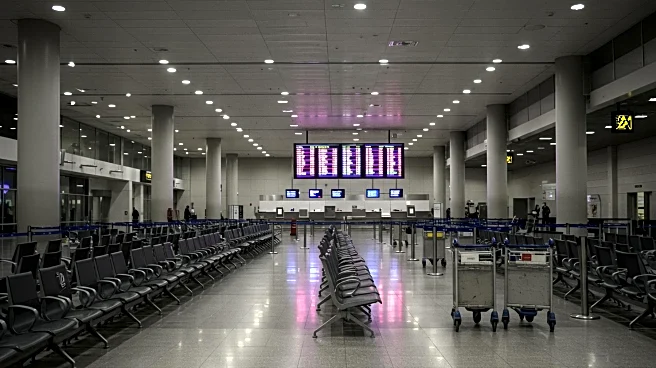What's Happening?
Air Canada flight attendants have initiated an indefinite strike, leading to the grounding of most flights and affecting thousands of passengers. The strike results from failed negotiations between the union and airline management over wages and compensation. Approximately 27,000 U.S. passengers are estimated to be impacted daily, as Air Canada serves as a key connector for flights to Europe and Asia. The airline has canceled a significant portion of its schedule, and passengers are being offered waivers to reschedule their flights without additional fees.
Why It's Important?
The strike by Air Canada flight attendants has significant implications for U.S. travelers, particularly those relying on the airline for international connections. As a major carrier linking Canadian and U.S. markets, the disruption affects leisure, business, and essential travel. The timing of the strike during peak summer travel exacerbates the situation, with limited alternatives available for affected passengers. This event highlights the importance of labor relations in the airline industry and the potential ripple effects on travel networks and economic activities.
What's Next?
Air Canada is working to accommodate passengers on other carriers, although seat availability is limited due to the summer travel peak. The airline's regional partners will continue operating some services, but the strike's impact is expected to persist. Stakeholders, including United Airlines, may experience increased traffic as passengers seek alternative routes. The resolution of the strike will depend on further negotiations between the union and airline management, with potential implications for future labor agreements and operational strategies.
Beyond the Headlines
The strike raises broader questions about labor rights and compensation in the airline industry, particularly in the context of inflation and economic pressures. It also underscores the interconnectedness of global travel networks and the challenges faced by airlines in maintaining service continuity during labor disputes. The situation may prompt discussions about the role of unions in advocating for employee rights and the balance between corporate profitability and fair compensation.









